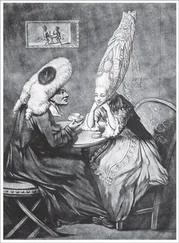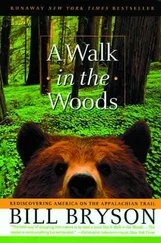Bill Bryson - Notes from a small Island
Здесь есть возможность читать онлайн «Bill Bryson - Notes from a small Island» весь текст электронной книги совершенно бесплатно (целиком полную версию без сокращений). В некоторых случаях можно слушать аудио, скачать через торрент в формате fb2 и присутствует краткое содержание. Жанр: Современная проза, на английском языке. Описание произведения, (предисловие) а так же отзывы посетителей доступны на портале библиотеки ЛибКат.
- Название:Notes from a small Island
- Автор:
- Жанр:
- Год:неизвестен
- ISBN:нет данных
- Рейтинг книги:4 / 5. Голосов: 2
-
Избранное:Добавить в избранное
- Отзывы:
-
Ваша оценка:
- 80
- 1
- 2
- 3
- 4
- 5
Notes from a small Island: краткое содержание, описание и аннотация
Предлагаем к чтению аннотацию, описание, краткое содержание или предисловие (зависит от того, что написал сам автор книги «Notes from a small Island»). Если вы не нашли необходимую информацию о книге — напишите в комментариях, мы постараемся отыскать её.
Notes from a small Island — читать онлайн бесплатно полную книгу (весь текст) целиком
Ниже представлен текст книги, разбитый по страницам. Система сохранения места последней прочитанной страницы, позволяет с удобством читать онлайн бесплатно книгу «Notes from a small Island», без необходимости каждый раз заново искать на чём Вы остановились. Поставьте закладку, и сможете в любой момент перейти на страницу, на которой закончили чтение.
Интервал:
Закладка:
I can't tell you how much I was looking forward to this. I fretted all the way that I would miss my rail connection at Doncaster and then I fretted again that I would miss the one at Leeds, but I reachedBradford in plenty of time nearly three hours early, in fact, which made me tremble slightly, for what is one to do in Bradford with three hours to kill?
Bradford's role in life is to make every place else in the world look better in comparison, and it does this very well. Nowhere on this trip would I see a city more palpably forlorn. Nowhere would I pass more vacant shops, their windows soaped or covered with tattered posters for pop concerts in other, more vibrant communities like Huddersfield and Pudsey, or more office buildings festooned with TO LET signs. At least one shop in three in the town centre was empty and most of the rest seemed to be barely hanging on. Soon after this visit, Rackham's, the main department store, would announce it was closing. Such life as there was had mostly moved indoors to a characterless compound called the Arndale Centre. (And why is it, by the way, that Sixties shopping centres are always called the Arndale Centre?) But mostly Bradford seemed steeped in a perilous and irreversible decline.
Once this was one of the greatest congregations of Victorian architecture anywhere, but you would scarcely guess it now. Scores of wonderful buildings were swept away to make room for wide new roads and angular office buildings with painted plywood insets beneath each window. Nearly everything in the city suffers from wellintentioned but misguided meddling by planners. Many of the busier streets have the kind of pedestrian crossings that you have to negotiate in stages one stage to get to an island in the middle, then another long wait with strangers before you are given four seconds to sprint to the other side which makes even the simplest errands tiresome, particularly if you want to make a eatercorner crossing and have to wait at four sets of lights to travel a net distance of thirty yards. Worse still, along much of Hall Ings and Princes Way the hapless pedestrian is forced into a series of bleak and menacing subways that meet in large circles, open to the sky but always in shadow, and so badly drained, I'm told, that someone once drowned in one during a flash downpour.
You won't be surprised to hear that I used to wonder about these planning insanities a lot, and then one day I got a book from Skipton Library called Bradford Outline for Tomorrow or something like that. It was from the late Fifties or early Sixties and it was full of blackandwhite architect's drawings of gleaming pedestrian precincts peopled with prosperous, confidently striding, semistick figures, and office buildings of the type that loomed over me now, and I suddenly saw, with a kind of astonishing clarity, what they were trying to do. I mean to say, they genuinely thought they were building a new world a Britain in which the brooding, sootblackened buildings and narrow streets of the past would be swept away and replaced with sunny plazas, shiny offices, libraries, schools and hospitals, all linked with brightly tiled underground passageways where pedestrians would be safely segregated from the passing traffic. Everything about it looked bright and clean and fun. There were even pictures of women with pushchairs stopping to chat in the openair subterranean circles. And what we got instead was a city of empty, peeling office blocks, discouraging roads, pedestrian drains and economic desolation. Perhaps it would have happened anyway, but at least we would have been left with a city of crumbling old buildings instead of crumbling new ones.
Nowadays, in a gesture that is as ironic as it is pathetic, the local authorities are desperately trying to promote their meagre stock of old buildings. In a modest cluster of narrow streets on a slope just enough out of the city centre to have escaped the bulldozer, there still stand some three dozen large and striking warehouses, mostly built between 1860 and 1874 in a confident neoclassical style that makes them look like merchant banks rather than wool sheds, which together make up the area known as Little Germany. Once there were many other districts like this indeed, the whole of central Bradford as late as the 1950s consisted almost wholly of warehouses, mills, banks and offices singlemindedly dedicated to the woollen trade. And then goodness knows how the wool business just leaked away. It was, I suppose, the usual story of overconfidence and lack of investment followed by panic and retreat. In any case, the mills went, the offices grew dark, the oncebustling Wool Exchange dwindled to a dusty nothingness, and now you would never guess that Bradford had ever known greatness.
Of all the once thriving wool precincts in the city Bermondsey, Cheapside, Manor Row, Sunbridge Road only the few dark buildings of Little Germany survive in any number, and even this promising small neighbourhood seems bleak and futureless. At the time of my visit twothirds of the buildings were covered in scaffolding, and the other third had TO LET signs on them. Those that had been renovated looked smart and well done, but they also looked permanently vacant, and they were about to be joined in their gleaming, wellpreserved emptiness by the two dozen others now in the process of being renovated.What a good idea it would be, I thought, if the Government ordered the evacuation of Milton Keynes and made all the insurance companies and other firms decamp to places like Bradford in order to bring some life back to real cities. Then Milton Keynes could become like Little Germany is now, an empty place that people could stroll through and wonder at. But it will never happen, of course. Obviously, the Government would never order such a thing, but it won't even happen through market forces because companies want big modern buildings with lots of car parking, and nobody wants to live in Bradford, and who can blame them? And anyway, even if by some miracle they find tenants for all these wonderful old relics, it will never be anything more than a small wellpreserved enclave in the heart of a dying city.
Still, Bradford is not without its charms. The Alhambra Theatre, built in 1914 in an excitingly effusive style with minarets and towers, has been sumptuously and skilfully renovated and remains the most wonderful place (with the possible exception of the Hackney Empire) to see a pantomime. (Something I positively adore, by the way. Within weeks of this visit, I would be back to see Billy Pearce in Aladdin. Laugh? I soaked the seat.) The Museum of Film, Photography, Imax Cinema and Something Else (I can never remember the exact name) has brought a welcome flicker of life to a corner of the city that previously had to rely on the world's most appalling indoor ice rink for its diversion value, and there are some good pubs. I went in one now, the Mannville Arms, and had a pint of beer and a bowl of chilli. The Mannville is well known in Bradford as the place where the Yorkshire Ripper used to hang out, though it ought to be famous for its chilli, which is outstanding.
Afterwards, with an hour still to kill, I walked over to the Museum of Television, Photography and Whatever, which I admire, partly because it is free and partly because I think it is deeply commendable to put these institutions in the provinces. I had a look through the various galleries, and watched in some wonder as throngs of people parted with substantial sums of cash to see the two o'clock Imax show. I've been to these Imax screenings before and frankly I can't understand their appeal. I know the screen is massive and the visual reproduction stunning, but the films are always so incredibly dull, with their earnest, leaden commentaries about Man's conquest of this and fulfilling his destiny to do that this latest offering which had the crowds flocking in was actually called Destiny in Space when any fool can see that what everybody really wants is to go on a rollercoaster ride and experience a little herecomesmylunch aerial divebombing.
Читать дальшеИнтервал:
Закладка:
Похожие книги на «Notes from a small Island»
Представляем Вашему вниманию похожие книги на «Notes from a small Island» списком для выбора. Мы отобрали схожую по названию и смыслу литературу в надежде предоставить читателям больше вариантов отыскать новые, интересные, ещё непрочитанные произведения.
Обсуждение, отзывы о книге «Notes from a small Island» и просто собственные мнения читателей. Оставьте ваши комментарии, напишите, что Вы думаете о произведении, его смысле или главных героях. Укажите что конкретно понравилось, а что нет, и почему Вы так считаете.












